
GPT-5.2: Smarter. Faster. Limitless.
The new model understands intent better than you can type it. Here is why the days of fighting with complex prompts might finally be over.
Discover OpenAI’s ChatGPT Atlas, the world’s first AI-native browser integrating ChatGPT, memory, and agent actions—now available on macOS.
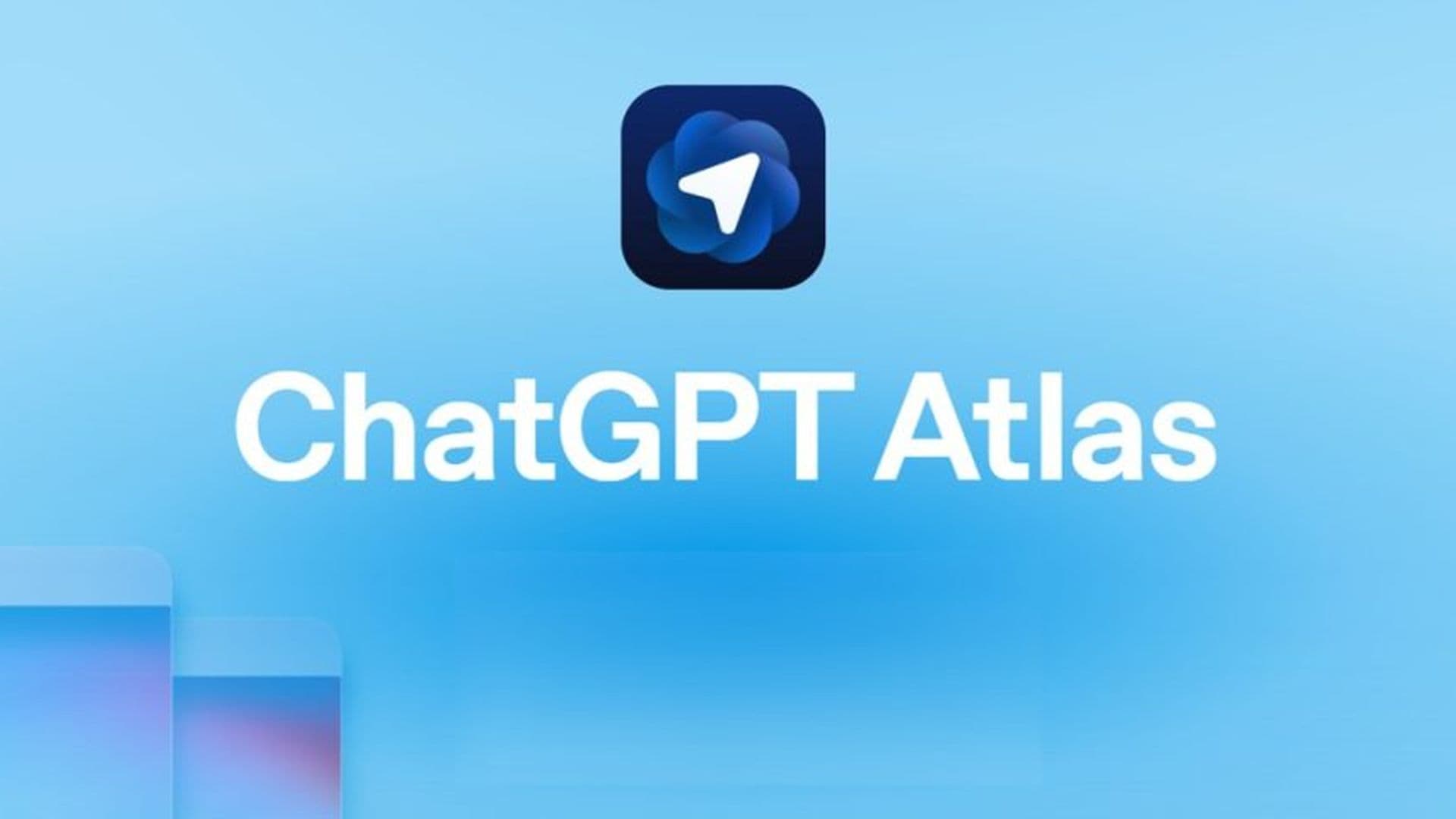
Imagine opening your browser and asking: “What were the key takeaways from that article I read on AI regulation?”
Instead of digging through tabs or copying links into a chat-window, your browser not only understands what you mean—it acts.
With ChatGPT Atlas, browsing becomes less about managing tabs and more about getting things done.
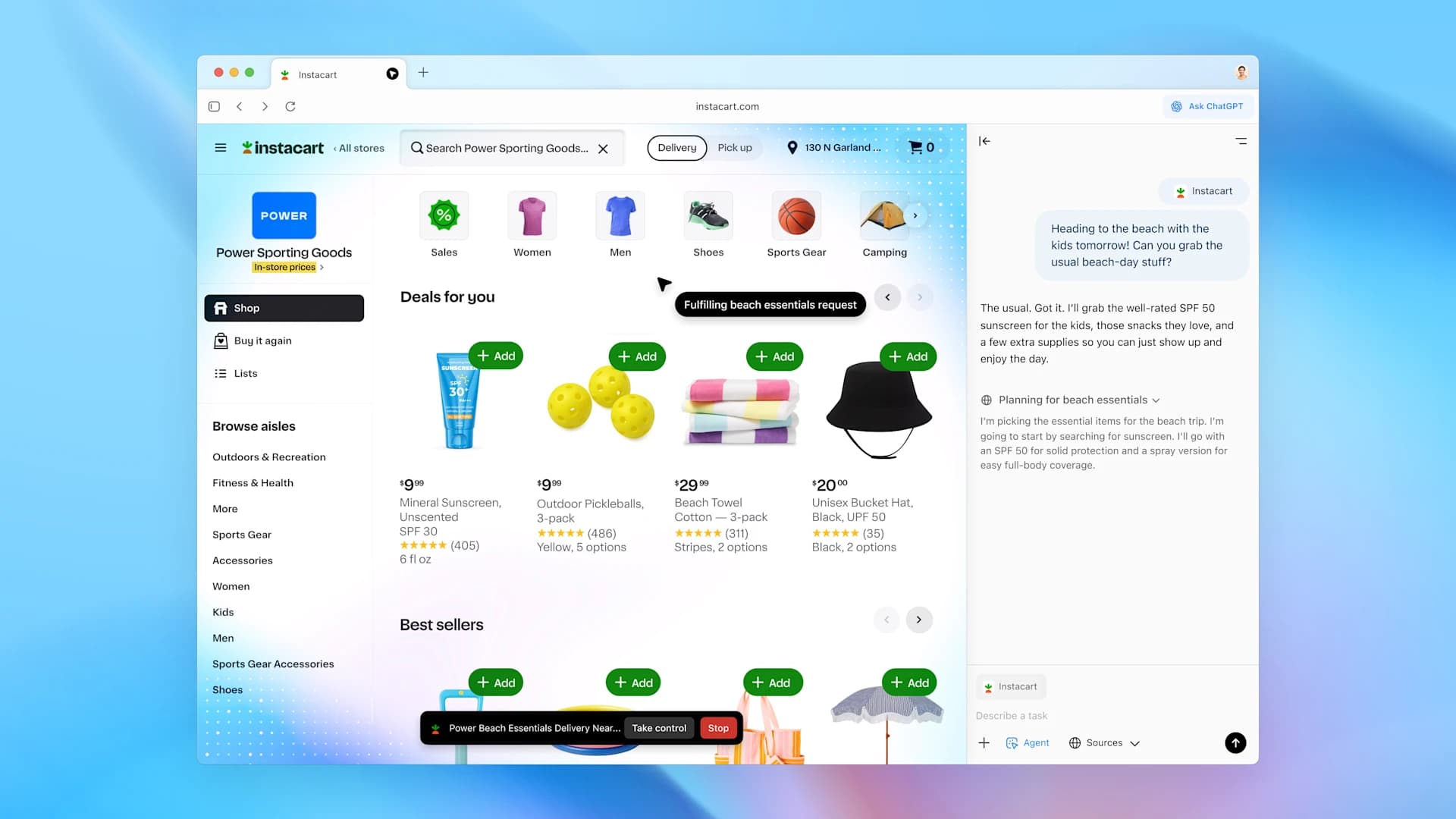
ChatGPT Atlas is OpenAI’s new web browser, launched 21 October 2025, with ChatGPT embedded at its core.
It is available now for macOS, with Windows, iOS and Android versions coming soon.
Key innovations: a ChatGPT sidebar on any page, memory for context, and an optional “Agent Mode” that executes workflows.
It’s not just another browser—it’s an AI-native browsing interface.
From India’s perspective: as AI usage and mobile adoption accelerate, the upcoming cross-platform rollout could be especially impactful.
ChatGPT Atlas is a full web browser built by OpenAI where ChatGPT isn’t an afterthought—it’s the foundation. According to the official blog:
“Today we’re introducing ChatGPT Atlas, a new web browser built with ChatGPT at its core.” That means rather than opening a separate tab or extension, you access AI help in-context, wherever you are on the web.
Key facts:
Launch date: 21 October 2025.
Platforms: Mac (general), plus Business/Enterprise in beta; Windows/iOS/Android versions to follow.
Import capability: You can bring over your bookmarks, passwords and browsing history from another browser.
Purpose: When your browser truly “knows” what you’re doing, it can assist rather than just display.
ChatGPT can remember what you’ve explored and suggest what to do next, whether that’s returning to past pages, digging deeper into a topic, surfacing related ideas, or automating routine tasks.
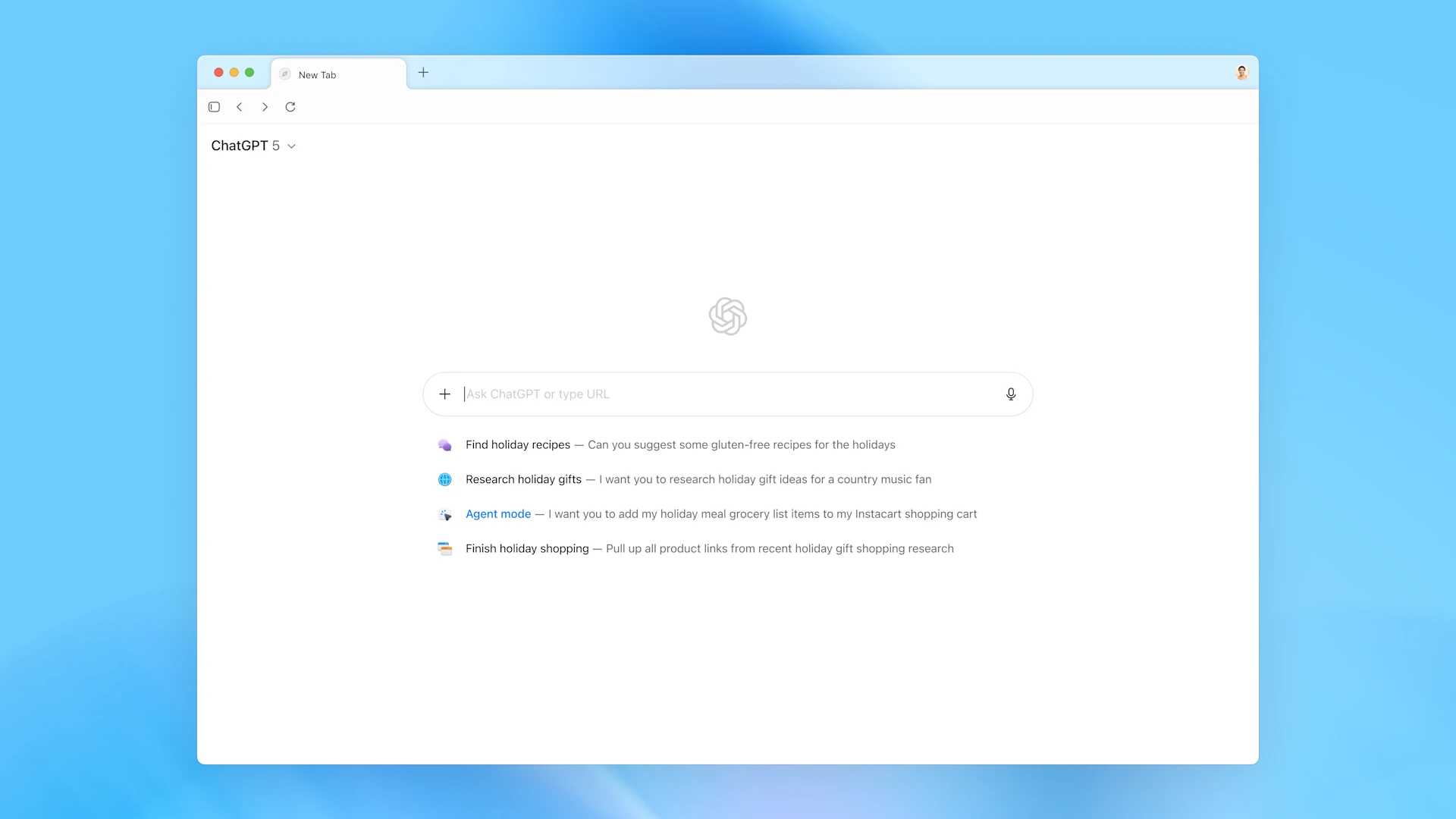
Whenever you’re on a webpage, you can open the ChatGPT pane and ask questions like:
“Summarize this article,” or “Compare these two laptops on this page.”
This is built-in, not a bolted-on extension.
Atlas includes the ability to remember relevant facts or tasks you’ve done—if enabled—so it can draw on prior context. As the blog states:
“Your ChatGPT memory is built in, so conversations can draw on past chats and details.” This means fewer repeated explanations from the user side and more continuity in browsing.
For users who subscribe to premium tiers, Agent Mode allows ChatGPT to act, not just answer:
“Find the best flights for a week in July and give me a shortlist.”
Atlas can open tabs, gather relevant data, and present a coherent response.
It isn’t just a toy browser—it supports tabs, downloads, history, bookmarks, etc., like any modern browser. But layered on top is AI that understands what you are doing.
Although Mac is first, OpenAI’s roadmap points to Windows, iOS and Android—underscoring a goal of device-agnostic AI browsing.
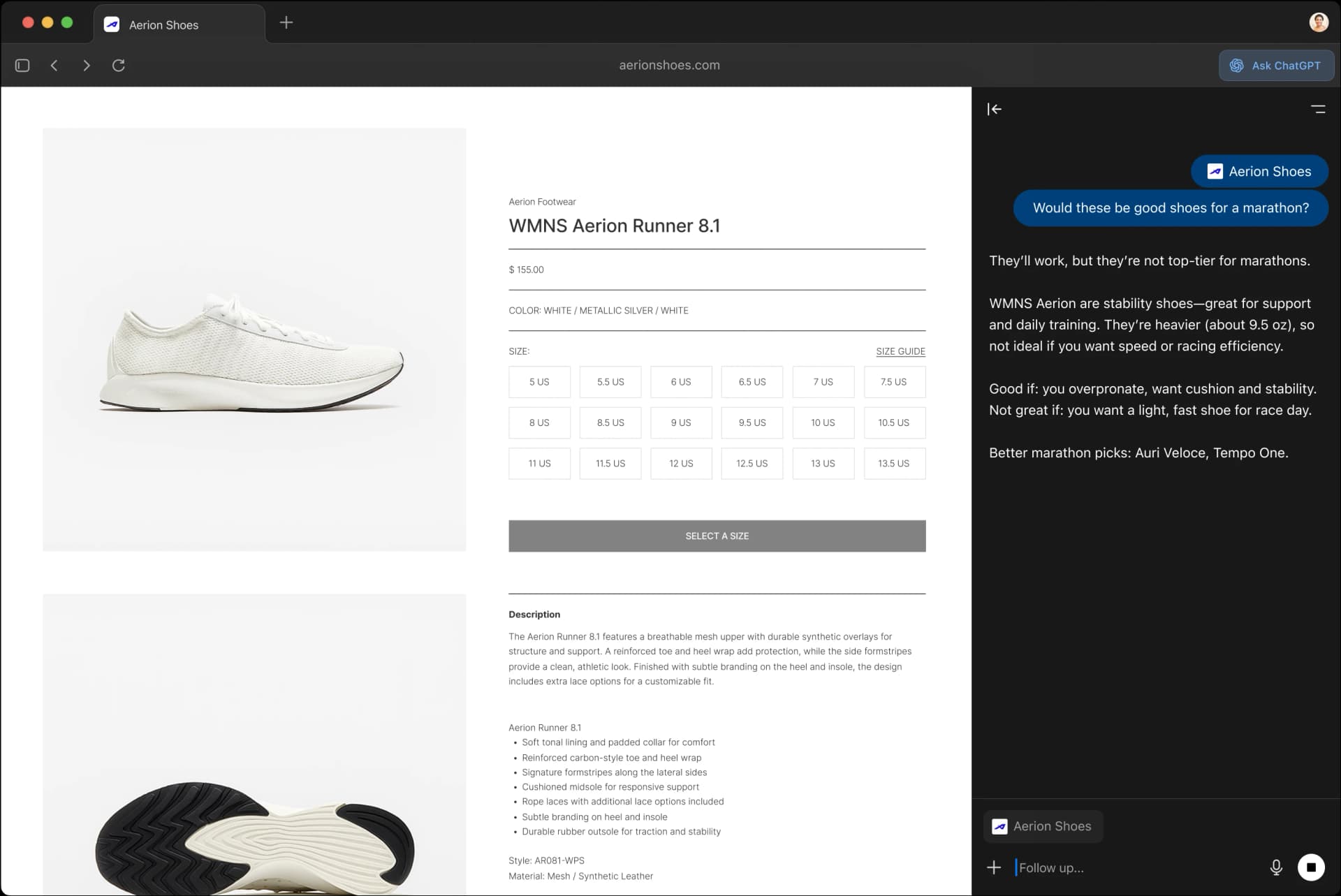
The browser has remained largely unchanged in its fundamental model for years. With Atlas, OpenAI seeks to reinvent that model. Some key strategic implications:
By embedding ChatGPT into the browser, OpenAI gains distribution power—it turns AI assistance into a default interface.
With memory and context, Atlas surfaces personalised browsing, not one-size-fits-all search.
The agent model hints at the future: browsers that execute tasks, rather than just surf pages.
From a competitive angle, OpenAI’s move positions it against legacy browsers (and search engines) in a fundamental way.
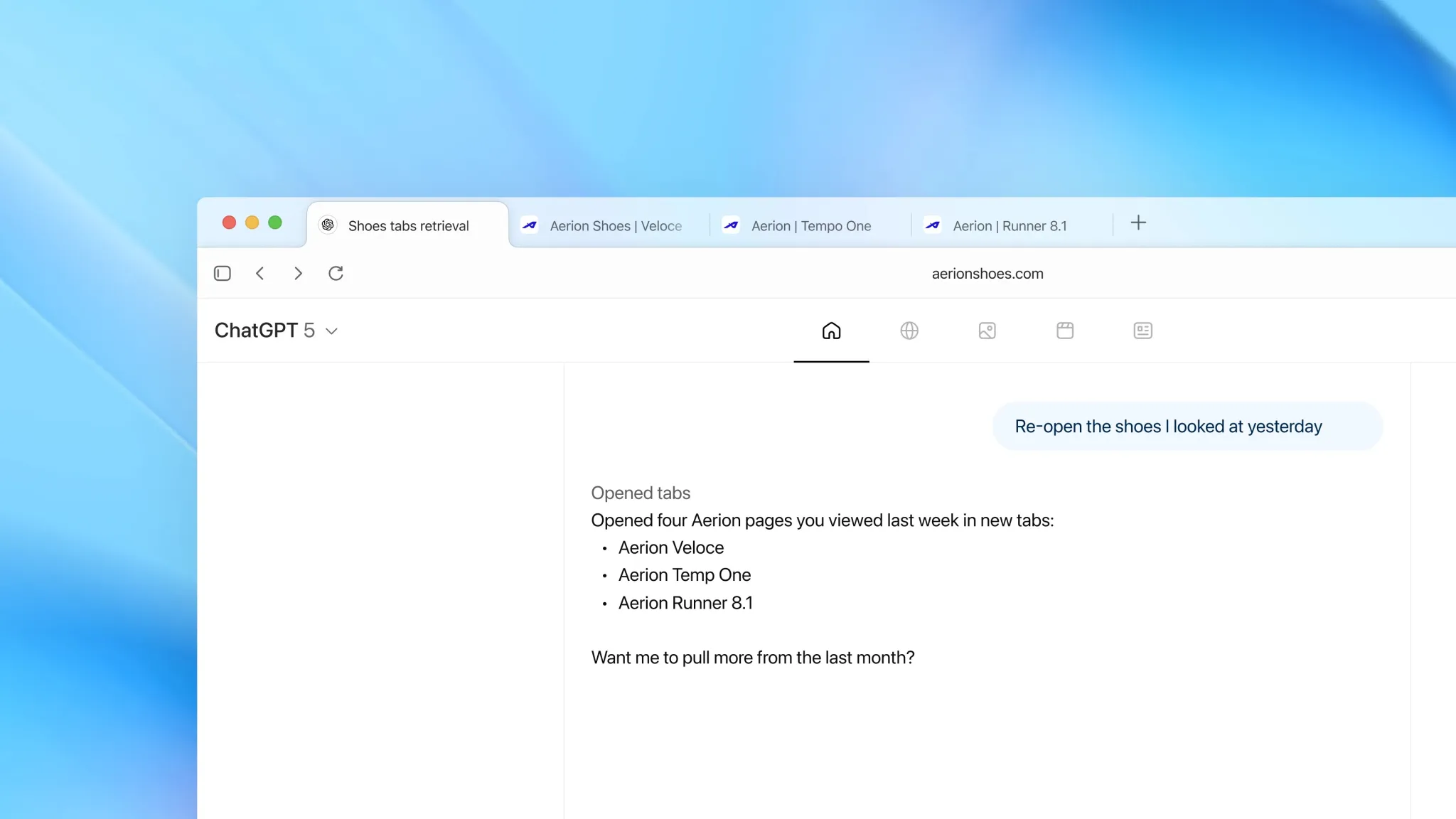
No tool is perfect on launch. A few considerations to keep in mind:
Privacy & data control: While memory is opt-in, questions remain about how much browsing data is collected, how securely it is managed, and how transparent the process is.
User adoption: Even with superior features, shifting users from their habitual browser will be difficult. Compatibility, extensions and environment matter.
Task accuracy and safety: Agent Mode automates actions—but AI misunderstandings or unexpected results are still risks. Users will need to remain in the loop.
Platform rollout: For many users (especially in India where the user base is mobile-first), the Windows/iOS/Android versions are critical—and not yet available.
Q1: Is ChatGPT Atlas free?
Yes. The browser is free to download for macOS users. Key paid features (such as Agent Mode) are part of Plus/Pro tiers.
Q2: How is it different from using ChatGPT in a browser extension or separate tab?
Atlas embeds ChatGPT into the browsing experience itself. According to OpenAI, the model “understands what you’re doing, and completes tasks … without copying and pasting or leaving the page.”
Q3: Does it store and use my data?
By default, users are opted out of having browsing data used for model training. Memory features are opt-in and can be cleared or disabled at any time.
Q4: When will mobile or Windows versions release?
OpenAI states Windows, iOS and Android versions are coming soon; no specific date has been confirmed yet.
ChatGPT Atlas is more than a new browser—it is OpenAI’s vision of how the web should evolve: from pages and tabs to conversations and tasks.
While it doesn’t immediately replace your familiar browser, it introduces a powerful shift: your browsing becomes interactive, context-aware and agent-enabled.
As we move from clicks to conversations and from search to tasks, Atlas may well mark the turning point of how we engage with the web.
For users in India and globally, the promise is compelling: a browser that not only shows you information—but helps you do something with it.
The question now isn’t if this AI-native model will succeed—it’s when and how quickly it will become the new standard.
https://openai.com/index/introducing-chatgpt-atlas/
https://www.reuters.com/technology/openai-unveils-ai-browser-atlas-2025-10-21/
https://skywork.ai/blog/ai-agent/openai-atlas-chatgpt-powered-browser-explained/
Continue exploring these related topics

The new model understands intent better than you can type it. Here is why the days of fighting with complex prompts might finally be over.

Master the art of building production-ready AI Voice Agents in this step-by-step LangChain tutorial.

Microsoft’s Agent Lightning is an open-source trainer layer for AI agents, using RL and fine-tuning to turn static LangChain/OpenAI agents into learning systems.